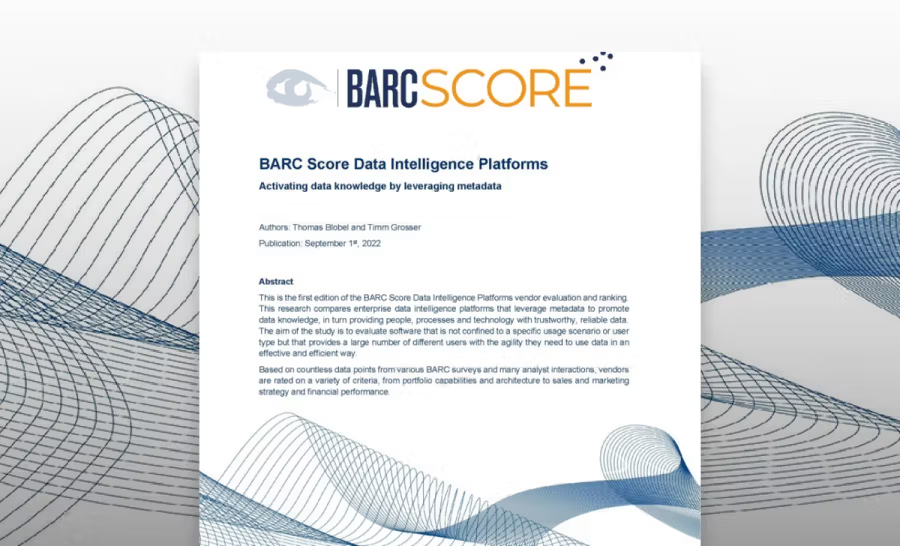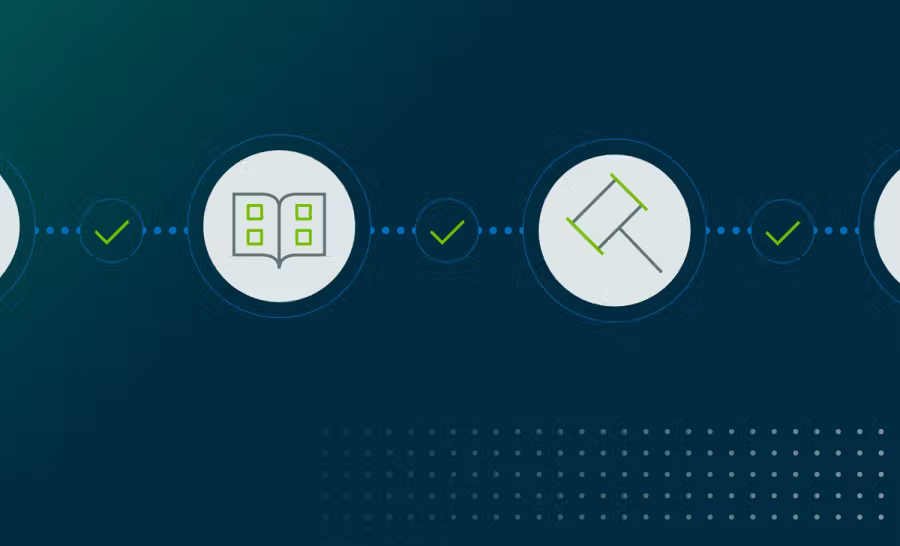Creating a mature data culture

Let’s talk about data maturity.
In the general sense, maturity is the state of being fully developed.
At Collibra, we define data intelligence maturity as:
- The ability for your organization to leverage data to make informed business decisions
- The degree to which your organization has adopted and implemented the technologies, processes, and policies required to manage your data on demand and at scale
According to the 2022 Data Intelligence Index, nearly 7 out of 10 professionals believe data intelligence is crucial to making informed business decisions and driving better business outcomes.
The significance of data intelligence maturity to the bottom line is evident in its effects. In fact, the top three business outcomes seen by respondents from highly mature data cultures include:
- Industry innovation
- Adherence to regulatory compliance requirements
- Faster time-to-market for new products and services
Data maturity is a critical dimension of enterprise success. The same IDC study showed that data intelligence maturity drives 3X better business outcomes.
The demand for data maturity
It’s clear to all: We live in a digital-first world. So why aren’t organizations putting data first?
How many organizations trust their data? How many have a clear view into their enterprise data ecosystem? And how many can claim to not have challenges around data governance?
These are not isolated concerns. According to IDC, 65% of organizations are challenged with identifying and controlling data sources in their organization, and only 5% of respondents claimed not to have organizational data governance challenges.
So how do you build a mature data culture?
Building a mature data culture
At Collibra, we believe that mature data cultures enable data citizens to use data to do their jobs.
We believe that in today’s organizations, most professionals are already data citizens. They just don’t have the same access to data.
An organization that puts data first is one that has a strong data culture informed by intelligence about data. It’s an organization that enables data cataloging, data lineage, data quality management, and data governance. And as a result of all of these efforts, it’s an organization that drives trust in data and business outcomes. 86% of respondents claim to have a dedicated team responsible for data culture, working to build data literacy and integrate the use of data into everyday business activities.
So if data is at the center of our data-driven world, why aren’t more companies living up to their data-driven aspirations?
It’s a continuous effort for large organizations that are always transforming, always evolving, always hiring new people. And it has to be a continuous effort because we’ve seen organizations continue to be challenged to better control data sources and the flow of data. This creates a lot of risk.
Strategies to drive adoption
Of course, getting to data maturity can be difficult. But the risks aren’t going anywhere; neither are the rewards.
With the support of the right data intelligence solution, you can establish a mature data culture in two ways:
- Strong executive leadership
- Robust educational program
Executive participation in a data intelligence program sends a clear signal across the organization.
But before your executives can begin, what’s needed is a clear vision and a clear strategy for data. That strategy needs to include monetization: How will you get value from data? For data leaders, your job in the organization is to get everyone thinking about data as an asset.
But it’s not enough to just have leadership out there championing data intelligence.
The second part of the equation is you have to win the hearts and minds of the data citizens across the organization. You have to win people over.
And that involves an educational approach that centers your communication in empathy. How will your data citizens use data? What are their requirements? What are their must-haves? What are their watch-outs?
If you combine these two strategies with good technology to connect people to data so they can execute on their responsibilities, then you have the pieces in place to really start creating a mature data culture.
In this post:
Related articles

Data IntelligenceJanuary 27, 2022
Accelerate IFRS-17 Compliance with Data Intelligence Platform

Data IntelligenceSeptember 27, 2022
Collibra is a Market Leader in first-ever BARC Data Intelligence Platform Vendor Evaluation

Data IntelligenceOctober 28, 2022
The must-have checklist for maximizing the value of your data catalog and governance investments with Collibra

Data IntelligenceMarch 10, 2022
Improve data literacy and data sharing in government
Keep up with the latest from Collibra
I would like to get updates about the latest Collibra content, events and more.
Thanks for signing up
You'll begin receiving educational materials and invitations to network with our community soon.
